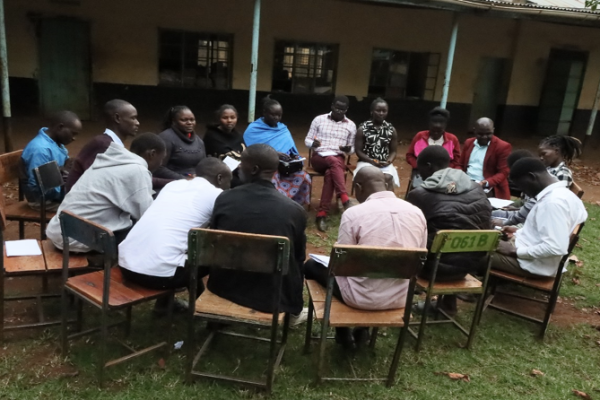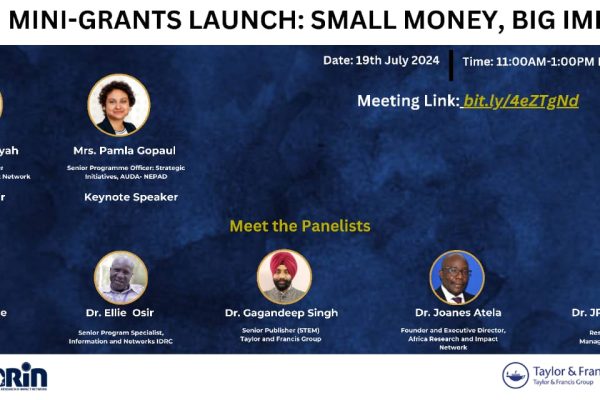Authored by Dr. Joanes Atela, ARIN Convenor, and Kennedy Mbeva, ARIN Co-Convenor
The Africa Research and Impact Network (ARIN) has just concluded its inaugural Annual Conference that kicked off on Wednesday 18th November, running for 3 days until Friday 20th November 2020. The theme of the conference ‘’Africa in the Post-COVID World: Lessons for Research and Policy’’ is a reflection of the times we are living in – a time when the world is fighting one of the greatest threats to humanity, the COVID-19 pandemic.
The COVID-19 pandemic has unfolded in a world struggling to cope with major global challenges. From global climate change to social unrest, global challenges have been mounting as efforts to address them have registered slow progress.
For Africa, the COVID-19 experience comes at a time when Member Countries had prepared development plans to enable a transition to sustainable industrialized economies in line with the AU Agenda 2063 and the SDGs. Indeed, there have been concerns from the WHO and other commentators that Africa would be the most impacted region by the pandemic, owing to its weaker socio-economic safety nets. The pandemic has affected various sectors important to the continent’s growth (cities, tourism, minerals, agriculture among others). In fact, the COVID-19 pandemic threatens to drain away from the sustainable development gains the continent has achieved over the last two or so decades.
The pandemic has reinforced already existing vulnerabilities within the continent. Communities and groups that did not have access to adequate sanitation services, for instance, have been most disadvantaged when responding to the pandemic. Moreover, livelihoods for those who depend on daily wages have disappeared, especially due to mandated lockdowns with no social support for such vulnerable groups. Heavily indebted African countries are struggling to pay their debts, with most of them at risk of major defaults.
As efforts are geared towards developing safe vaccines – as the promising measure for managing the pandemic – many African countries are lifting restrictions and easing the stringent actions including lockdowns. Countries and citizens are eager to revert to normal lives as the race to economic recovery takes center stage, incentivized by substantial stimuli towards economic recovery. Its no doubt that the eagerness to recover could potentially create new spaces for reinforcing existing challenges such as pollution and climate change, urban hazards, among others.
The all-important question for research and policy is therefore how to safeguard and consolidate the resultant lessons to inform the management and repositioning of resources not only for development but also as a cushion against future pandemics, disasters, and other shocks. How do we ensure that we build back better and instill a culture of preparedness in our policies and actions? How do we bring everyone on board to a dialogue table for joined-up action agenda? These questions are critical in helping the continent rethink its future resilience – leveraging on the COVID-19 experience.
It is within this context that the African Research & Impact Network (ARIN) convened this conference. ARIN is an impact platform that brings together a network of scholars and policymakers across Africa. ARIN’s core focus is to engage in peer learning and sharing good transformative research and impact practices targeting key sectors identified as critical for sustainable development.
Drawing on cutting-edge research that will comprise an edited book volume, eminent panel sessions, and thematic side events, the conference explored the impacts and lessons of COVID-19 in Africa and how best to engage in the post-COVID recovery plans.
In a broader context, the conference underscored the essence of timely engagement on the most pressing public challenges in the world, and the African context. The global scope of participants also underscored the importance of engaging within and beyond Africa. After all, global challenges are shared but differentiated.


